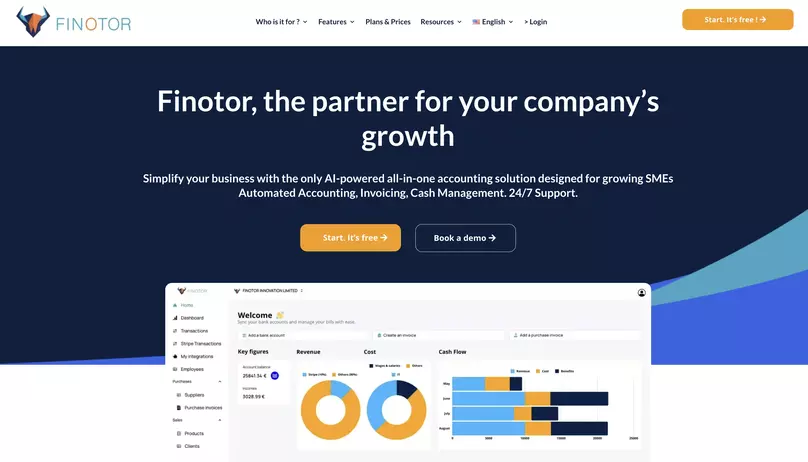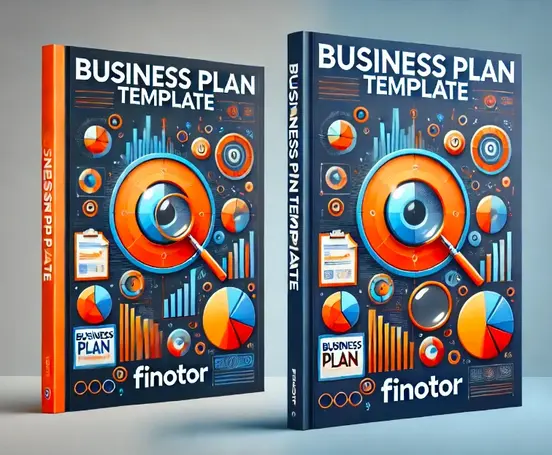Contents
The Unstoppable Evolution of Entrepreneurship in 2025 🚀
Entrepreneurship is a wild adventure. To become an entrepreneur in 2025 is a bit like being in the Wild West in the 19th century. It’s difficult, ruthless and destructive. But it’s also a real epic, a gold rush! So being an entrepreneur is very difficult – always has been, always will be.
But as we approach 2025, the game is changing faster than ever. If you thought 2024 was tough, buckle up. The upcoming year is set to challenge even the most seasoned entrepreneurs with trends, technologies, and societal shifts that will separate the ambitious from the successful.
Whether you’re a CEO, startup founder or freelancer, you can’t afford to ignore the harsh reality of being an entrepreneur in 2025. It’s a cut-throat race in which agility, innovation and resilience will be the keys to success.
Let’s break down what 2025 has in store for entrepreneurs who are ready to not just survive but thrive in this rapidly evolving ecosystem.
The Rise of AI-Driven Startups 🤖
2025 is the year when AI will no longer be an optional tool—it will be a fundamental necessity. To become an entrepreneur in 2025, forget the simple chatbots and automation tools we’ve been playing with; next year’s AI will dive deep into predictive analytics, marketing automation, and even product development.
AI is making entrepreneurship more accessible for solopreneurs and small teams. Why? Because AI systems can now handle tasks previously reserved for entire departments. From AI-generated marketing campaigns to customer service bots that mimic human empathy, startups can compete at a scale that was previously unimaginable.
Pro tip: Entrepreneur in 2025 who master the integration of AI into their day-to-day operations will stay ahead of their competitors. Take advantage of tools such as automated accounting and financial analysis software Finotor.
- Reduce your workload,
- Secure your accounting entries,
- You save time
- Reduce your management budget
- and take a mental load off your shoulders.
Concentrate on creating real value!
The Decentralization of Funding 💰
Entrepreneurship has always been about raising capital. But in 2025, venture capital isn’t the only game in town. The decentralization of funding is becoming a game-changer. Crowdfunding, crypto-financing, and tokenization are going mainstream. Platforms built on blockchain technology will offer entrepreneurs access to new pools of capital without the traditional gatekeepers.
Imagine launching an NFT project tied to your startup’s growth or issuing tokens as equity to early-stage investors. In 2025, this will become the norm, enabling entrepreneurs to build, scale, and disrupt without relying solely on venture capitalists.
Pro Tip: Start researching decentralized finance (DeFi) now. Entrepreneur in 2025 who integrate crypto-based funding models early will have a massive advantage.
Watch the video on finance for small businesses : > Click here

Sustainability Is No Longer Optional 🌍
Sustainability isn’t just a buzzword anymore; it’s a business imperative. In 2025, customers, investors, and governments will demand that businesses integrate eco-friendly practices at every level. The new wave of entrepreneurs will be those who can balance profit with purpose, creating ventures that generate social impact alongside financial returns.
From carbon-neutral supply chains to businesses that actively work to reduce waste, sustainability will be a competitive differentiator. Customers are increasingly making buying decisions based on a brand’s environmental footprint. Investors, too, are pouring more funds into green tech and sustainability-focused businesses.
Pro Tip: Entrepreneurs need to think holistically. Sustainability doesn’t just look good on paper—it can drive revenue, attract investors, and build a loyal customer base. Think of tools like Finotor, which can help analyze the financial impact of sustainability practices.
The Hybrid Workforce Is Here to Stay 💻
The post-pandemic world showed us that remote work works. By 2025, the concept of a hybrid workforce—combining remote, on-site, and freelance talent—will be fully normalized. For entrepreneurs, this means access to global talent and the ability to scale teams dynamically without the need for costly office spaces.
The challenge for entrepreneurs will be building cultures that keep remote workers engaged while maintaining productivity across time zones. The businesses that crack this code will not only reduce operational costs but also tap into the full potential of a global talent pool.
Pro Tip: Invest in collaboration tools and robust HR practices that support a hybrid work model. Flexibility is the future of work, and your ability to adapt will determine your company’s success.
The Era of Niche Market Domination 🎯
In 2025, the path to success is narrowing. Mass markets are saturated, and the future belongs to businesses that hyper-focus on niche markets. With the rise of hyper-personalization powered by data, customers expect products and services tailored specifically to their needs, no matter how niche.
Entrepreneurs in 2025 will need to drill down, identify underserved micro-communities, and build products or services that speak directly to these customers. Mass appeal is fading; the most successful brands will be those that master niche market domination.
Pro Tip: Use data analytics tools to identify niche opportunities and market gaps. For an entrepreneur in 2025, building a strong, loyal community within a specific niche will prove more profitable than trying to appeal to everyone.
Finances on Autopilot with AI and FinTech 🚀
Managing cash flow, taxes, and bookkeeping has always been an entrepreneur’s nightmare. But in 2025, AI-powered FinTech solutions will make it possible to automate these tasks completely. Financial software like Finotor will not only manage your accounts but will also provide predictive analytics that help you make smarter decisions about scaling, investing, and spending.
Imagine a world where your financial software tracks your profit margins in real-time, warns you when cash flow is low, and suggests funding options based on your growth trajectory. This is the reality of 2025.
Pro Tip: If you’re still doing your books manually, it’s time to embrace FinTech. Automate everything and free up your time for strategy and innovation.
Mental Health Will Be the Competitive Edge 🧠
Entrepreneurial burnout is real, and by 2025, mental health will no longer be a side note; it will be a core part of business strategy. More entrepreneurs will openly discuss their struggles with stress, anxiety, and burnout—and more businesses will adopt mental health initiatives to attract top talent.
For the entrepreneur in 2025, maintaining mental well-being will become essential for long-term success. The businesses that prioritize mental health, both for themselves and their employees, will have lower turnover rates, higher productivity, and more innovative work cultures.
Pro Tip: Make mental health part of your company culture. Encourage wellness practices, create supportive work environments, and invest in tools that monitor and support mental well-being.
Conclusion: Are You Ready for 2025?
The entrepreneurship landscape in 2025 will be fast, fierce, and full of opportunities for those who can adapt. The key to thriving will be leveraging AI, embracing decentralized funding, prioritizing sustainability, and hyper-targeting niche markets. Entrepreneurs who can automate their finances, maintain a flexible workforce, and prioritize mental health will dominate their industries.
Entrepreneurship isn’t getting easier—it’s getting more competitive. But for those willing to innovate and stay ahead of the trends, 2025 offers immense possibilities. The question is: Are you ready to thrive in the entrepreneurial world of tomorrow?
🚀 Start preparing now by implementing smart financial tools like Finotor and leveraging the trends we’ve outlined.
Don’t just survive 2025—dominate it.
FAQ: Thriving in Entrepreneurship in 2025
- Why is AI essential for entrepreneurs in 2025?
AI will no longer be optional in 2025—it will be necessary for automating tasks like marketing, customer service, and even product development. Entrepreneurs who embrace AI can streamline operations and focus more on strategy and growth. - What is decentralized funding, and how will it impact entrepreneurs in 2025?
Decentralized funding includes crowdfunding, crypto-financing, and tokenization. In 2025, entrepreneurs will be able to access new capital sources without relying solely on traditional venture capital, offering more flexibility and control over their funding. - How can sustainability boost my business in 2025?
Sustainability isn’t just an option anymore—it’s a demand from customers and investors. Eco-friendly practices can differentiate your business, attract loyal customers, and make your brand more appealing to investors focused on green tech. - What is a hybrid workforce, and why is it important in 2025?
A hybrid workforce combines remote, in-person, and freelance talent. This model allows entrepreneurs to access global talent, reduce costs, and remain agile, which is essential for scaling efficiently in 2025. - How can focusing on niche markets benefit my business in 2025?
With the oversaturation of mass markets, dominating a niche allows entrepreneurs to build strong communities around specialized products or services. Hyper-personalization is key to serving these markets effectively. - How will AI-powered FinTech solutions change financial management in 2025?
AI-powered FinTech solutions like Finotor will automate tasks such as bookkeeping, cash flow management, and tax preparation. These tools provide real-time financial insights, helping entrepreneurs make smarter, faster decisions. - Why is mental health considered a competitive edge in 2025?
As the entrepreneurial environment gets more intense, mental health becomes essential for sustainability. Companies prioritizing mental well-being will have more productive, innovative teams and lower burnout rates, giving them a competitive advantage. - What can I do now to prepare for the challenges of 2025 entrepreneurship?
Begin by integrating AI tools, exploring decentralized funding options, and embedding sustainability into your business model. Also, consider investing in FinTech solutions like Finotor for automating financial processes and focusing on building a resilient hybrid workforce. - What role does automation play in entrepreneurship in 2025?
Automation will reduce manual tasks like invoicing, customer service, and inventory management, freeing up entrepreneurs to focus on scaling and strategy. Entrepreneurs who adopt automation early will outpace their competitors in efficiency and productivity. - How can focusing on mental health help my company succeed in 2025?
Prioritizing mental health reduces employee turnover and boosts productivity. By fostering a supportive environment, you’ll attract top talent and create a work culture that promotes longevity and innovation.









